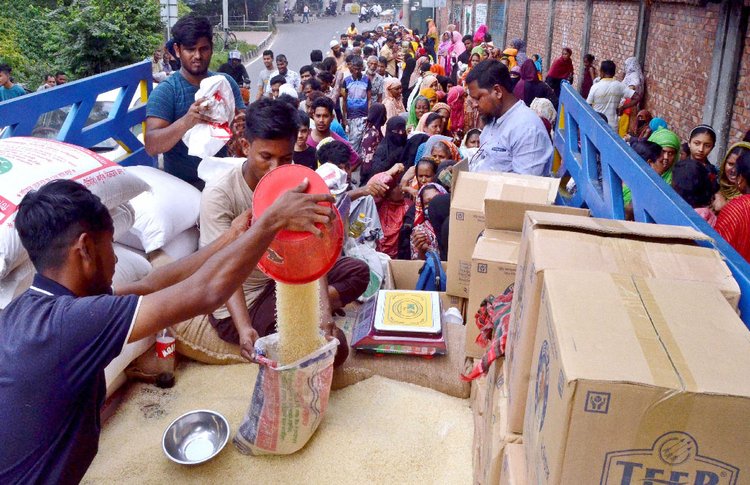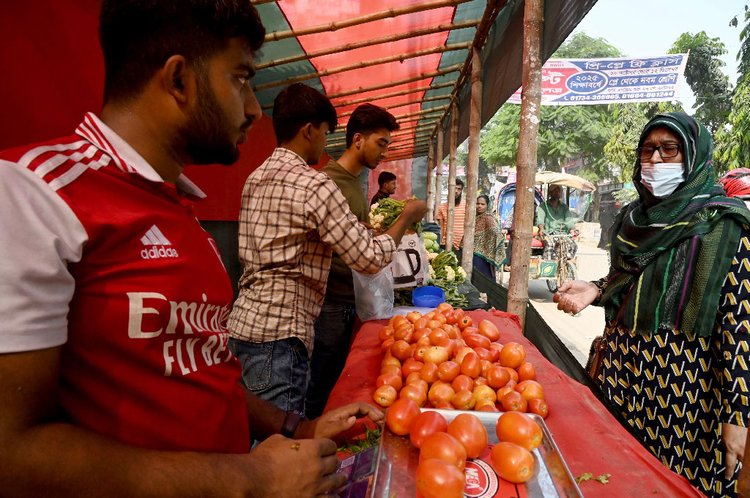Political instability and unprecedented floods in Bangladesh have pushed long-term inflation rates past double digits. Bangladesh Bank is following strict monetary policy including raising interest rates to control high inflation. But the price of the stuff is sky high. None of the measures including tariff reduction are working. As a result, it becomes difficult for the low income poor people to eat and survive.
The International Monetary Fund (IMF) has warned Bangladesh Bank about the impact of inflation in this situation. The organization has especially emphasized on helping the poor people. Thomas Helbling, Deputy Director of the IMF's Asia Pacific Department, presented this assessment recently in Tokyo, Japan.
The global lender says that while the supply shortage is the cause of the recent inflation, Bangladesh Bank needs to take steps to prevent a second round of the previous inflationary blow. Because, to the extent that inflation has increased, it is creating more fear among people. In such a situation tight monetary policy has to be balanced with fiscal policy to support the poor and sustain development activities.
In response to a question about the economic challenges and efforts to control inflation, Thomas said, 'Bangladesh has suffered from severe floods along with political unrest. As a result, the economy of the country, especially in the supply sector, has been greatly affected. According to us, this is the main reason for the upward trend in inflation.'

But inflation has been on the upswing for quite some time, he added. It started rising in 2022 and has remained relatively high ever since. Hence, contractionary monetary policy is helpful and necessary here. Therefore, increasing the policy interest rate or repo rate is the right decision.
While much of the recent inflation has been related to the supply sector, it is crucial for the central bank to prevent a second round of already high inflation, the IMF official said.
When asked whether contractionary monetary policy is enough to control high inflation in Bangladesh, he said, 'The country's fiscal policy should support monetary policy and monetary policy should be tightened to support external stability. But at the same time fiscal policy needs to be balanced to support the poor and sustain development.'
Three months have passed since the interim government assumed power last August. Inflation is increasing, last October general inflation crossed the double-digit mark and reached 10.87 percent. General inflation was 9.93 percent in October last year.
According to Bangladesh Bureau of Statistics (BBS) data, inflation in the food sector has reached unbearable levels. According to the latest report, food price inflation was 12.66 percent last October. However, non-food sector inflation is touching double digits at 9.34 percent.

Inflation has increased the price of consumer goods in the market and the consumers are sighing. People in large parts of the country are able to buy fish and meat and even eggs. But the interim government is not able to show any success in controlling the market. As a result, inflation increased more in October than last September.
An official of the relevant department of BBS told Ajkar newspaper that the price inflation has crossed the double digit mark last month due to the increase in food prices across the country. Inflation increased due to increase in prices of eggs, all types of vegetables and broiler chickens and fish in particular.
In such a situation, all types of allowance programs under social security under the social welfare ministry of the poor community are closed. The program was stopped by the interim government on the allegation that too many wealthy people were taking the allowance. After this government assumed office on August 8, it was decided to list the actual beneficiaries under the social security program. Those who are now in the list of beneficiaries, have been asked to see if they are really eligible for the allowance.
The allowance for the first quarter (July-September) of the current (2024-25) financial year has not been given as the new list under the Social Security Program has not been finalised. Usually this allowance is given in the month of October. But now half of November is gone, it is not clear when the beneficiaries will get the allowance. According to the information of the Department of Social Services, 9 thousand 565 crores have been allocated for the beneficiaries in the current budget.

